Recognizing 10 years since Hurricane Katrina (Aug. 23-31, 2005)
Second in a series of articles on the storm, its aftermath and the ensuing growth of Chabad in Louisiana
A decade after Hurricane Katrina devastated the gulf coast of Louisiana—ripping into a huge swath of land and leaving it awash in floodwaters for nearly a week—Jewish life has worked its way back to a new normal.
Hurricane Katrina was the costliest natural disaster in American history, as well as one of the five deadliest hurricanes in the United States. More than 1,800 people perished in the storm and resulting floods, with nearly 1,000 categorized as missing. At one point, nearly 80 percent of the city was underwater. Total damages surpassed $100 billion, with the storm adversely affecting some 90,000 square miles of territory. Recovery continues in many of the most hard-hit areas, particularly in New Orleans.
It also resulted in a considerable shift in the population. Many residents who fled during the storm never moved back to the city, even as newcomers relocated in, many of them young people who jumped at the chance for a fresh start and saw new horizons in the aftermath of the natural disaster. They wanted to be part of the renewal.
Grasping that demographic change is Rabbi Mendel Rivkin, who grew up in New Orleans. His parents, Rabbi Zelig and Bluma Rivkin, have co-directed Chabad-Lubavitch of Louisiana since they first moved to the Southern state in the early 1970s.
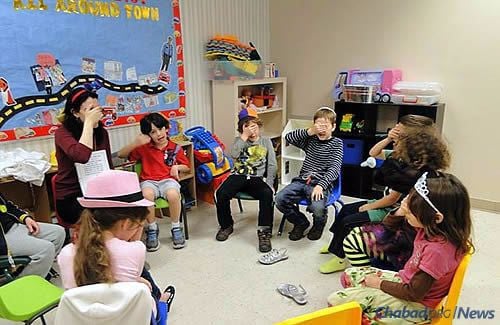
He left to study, but came back in 1998 with his wife, Malkie, serving as the Chabad center’s program director.
“There is a significant difference post-Katrina,” he acknowledges. “Some 35 percent of people left and did not return.”
Yet in the years that followed, an influx of Jewish professionals arrived in the area, say the Rivkins, who are creating novel programs to meet their needs and tastes—programs that speak to a crowd interested in what New Orleans has to offer. Historically, that has included noteworthy music and food.

For example, the city being one of America’s cuisine capitals, this past winter they hosted a “Chanukah Celebrity Chef Latke Cook-Off.” It was an instant hit, with more than 70 young professionals participating in something that spoke to them regionally and gastronomically. Last year’s public menorah-lighting event drew more than 500 people. And some 1,300-plus people currently receive their weekly emails.
Since Hurricane Katrina, Chabad’s Mikvah Chaya Mushka has been the only mikvah in Louisiana, serving women from as far away as Mississippi. Originally built in New Orleans in 1989, it reopened its doors in May 2010 at a new location.
Jewish students at Tulane University in New Orleans study the mitzvah of mikvah as part of the Sinai Scholars program, which integrates the study of classic Jewish texts, social programming and national networking opportunities to provide a fresh context for Jewish life and learning on university campuses. (About 2,000 Jewish students are enrolled at the university, with another 500 or so attending as Jewish graduate students.) Teens from local Sunday schools visit to learn about the mikvah as well.
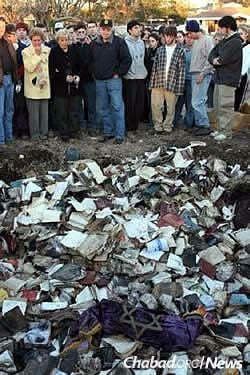
“Jewish tradition teaches us to rebuild in the face of adversity, to rededicate ourselves to our community despite difficult challenges,” says Rabbi Zelig Rivkin, who also sits on the board of directors of Torah Academy, the day school founded by Chabad and now serving the greater New Orleans Jewish community, in nearby suburban Metairie, La. “Our centers and school impact all segments of the community. Over the years, Chabad has played an important role in the building and rebuilding of the New Orleans Jewish community.”
The rabbi made it a point to thank those who came to their assistance in the days, weeks and months after the storm, and who helped them rebuild.
Torah Academy was severely damaged. Construction was finally completed on a new building last year, with help from FEMA. Prior to that, the school operated out of a satellite location with limited space.
Right before Katrina—on Aug. 29, 2005, to be exact—60 children attended the school. The hurricane wiped out everything that year, says Rabbi Mendel Rivkin; they restarted in January with fewer than 20 students. That number has fluctuated between 15 and 25 since then, but when the doors open this week, more than 40 kids will be walking through them.
Over the years, Chabad has beefed up recruiting efforts and is now in full swing, according to Rivkin, who notes that “the community is flourishing, with a lot of activities and great things going on.”
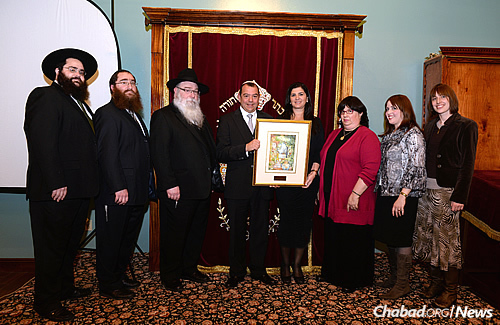
Expansion Continues, On and Off Campus
Chabad of Louisiana began working out of the facility it established in Uptown New Orleans near the Tulane University campus in 1975.
In 1990, Chabad of Louisiana opened a branch in Metairie, a suburb of New Orleans.
Chabad’s activities are now directed by 10 emissary couples: Rabbi Zelig and Bluma Rivkin; Rabbi Mendel and Malkie Rivkin; Rabbi Yossie and Chana Nemes; Dr. Dovid and Nechama Kaufmann; Rabbi Yochanan and Sarah Rivkin; Rabbi Mendy and Chavie Schechter; Rabbi Menachem and Chaya Mushka Ceitlin; and Rabbi Akiva and Hannah Hall, co-directors of Chabad Lubavitch of Southern Mississippi, who last year started the first Chabad House in the state. Among the most recent additions are Rabbi Leibel and Mushka Lipskier, who arrived less than two weeks ago to run undergraduate programs at Tulane University (while Rabbi Yochanan and Sarah Rivkin focus on graduate students, including law and medical students); and Rabbi Peretz and Chaya Mushka Kazen, who arrived this week to start Chabad of Baton Rouge, La.
Rabbi Mendel Rivkin conducts the instructive “Living Legacy” workshops, traveling to eight different locations up to four hours away. The series was created to help educators make the lessons and practices of Judaism interesting and relevant.
Born years ago as a cluster of independent craft workshops, such as the “Model Matzah Bakery” and the “Shofar Factory,” they have since been organized into a comprehensive series that brings the holidays and rituals of Judaism to life, he explains.
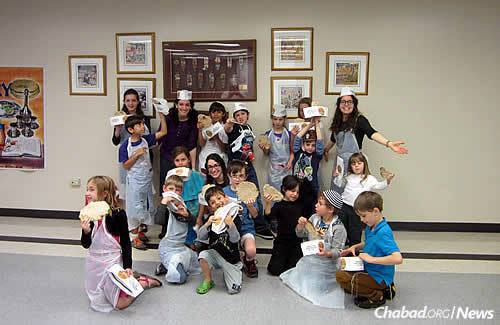
Continuing a Living Legacy
“The ‘Living Legacy’ series is an opportunity for children to have fun doing a craft project while at the same learning all of the details about the mitzvah or holiday,” explains Rivkin. “A child (or even an adult) who bakes his or her own matzah, for example, and goes through all the steps of the process will view the matzah and the Passover seder in a new light. The holiday comes alive for them and becomes much more meaningful.
“Through this series, we have been able to reach out to schools and groups all across the region—from Lafayette to Biloxi and everywhere in between,” he continues. “We have visited every single Jewish school and synagogue in the area. We regard every Jew in New Orleans as a member of our community.”
‘A Young Energy’
Rabbi Yossie Nemes, who with his wife, Chana, has co-directed the Chabad Center of Metairie in suburban New Orleans since 1990, has recognized the demographic changes over the past 25 years, let alone those within the last decade of reconstruction. Their Chabad flooded during Hurricane Katrina and suffered significant damage; it took years to fix up and rebuild everything.
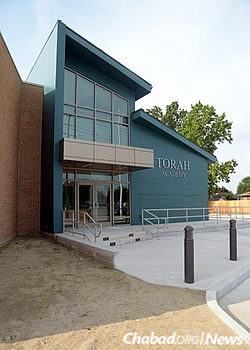
Theirs was the first Chabad building that was renovated, followed by Chabad at Tulane in 2007; the mikvah in 2010; the original Chabad center in New Orleans in 2013, which suffered wind-related damage to the roof; and the day school in 2014. In fact, everything has been rebuilt in the last 10 years.
“In town today are a lot of young professionals, young families and singles who have moved in,” says the rabbi. “There is a young energy in town. Chabad center activities are extremely busy with children.”
This Sunday, the school year kicks off with four classes and more than 30 students.
And every Shabbat morning, adds Nemes, the center hosts a children’s Shabbat party—run by youth directors there—in a room packed with kids of all ages, as exhibited by a lobby full of strollers.
“Our community is small compared to places like Houston and Dallas, but we have a lot of energy and enthusiasm—and now growth as well.”
The first article in the series “Ten Years After Hurricane Katrina: Two Rabbis Recall the Scene on the Ground” can be read here.
Next: New emissary couple just arrived in Baton Rouge to open the city’s first Chabad center
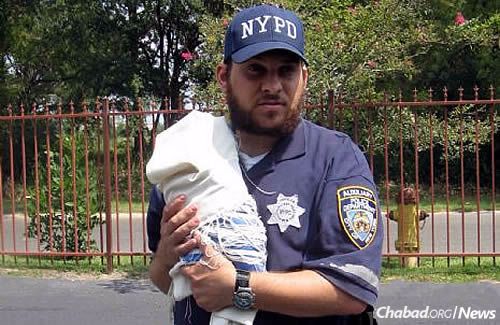


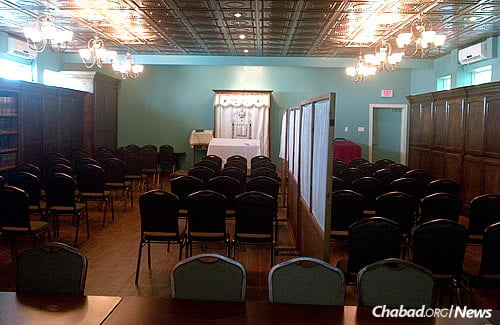
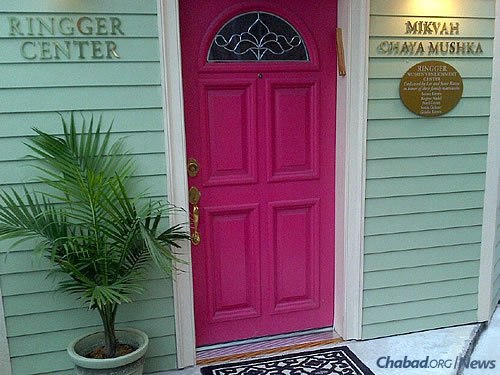

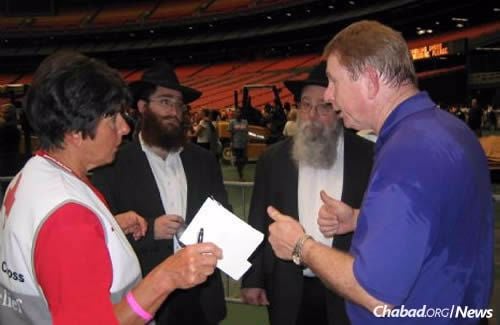



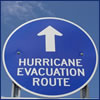
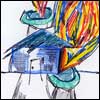


Join the Discussion